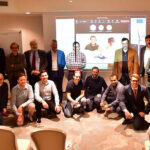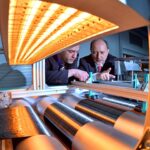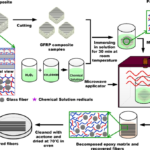Sustainability is becoming an ever more compelling argument in the materials selection process. Composite parts are extremely durable and have a long service life combined with low maintenance requirements, and lightweight composites result in lower energy consumption throughout a product’s life. End of use solutions, including recycling, are also available. LCAs which evaluate the environmental benefits of composite products throughout their life cycle are a valuable tool, but they are often complex and expensive and the results are dependent on the LCA system and the data employed. The EuCIA seminar, held in Brussels on 25 October, addressed these issues through presentations and networking discussions. In response to the proliferation of LCA techniques and need for reproducible results, the European Commission (EC) is currently working on a method to enable the quantitative assessment of the environmental impacts of products throughout their life cycle – the Product Environmental Footprint (PEF). The main deliverable of this project will be detailed rules which must be followed in order to calculate the environmental impact of a product. A list of the secondary datasets to be employed in the calculation will be included, which will be made available free of charge. EuCIA reported that the technical work on this initiative is expected to conclude early in 2018, but it has yet to be decided if these rules will play a role in future legislation. Seminar attendees also listened to presentations on topics including:
The environmental impact of composites over the complete life cycle of a part, and designing to minimise this;
Comparison of the environmental impact of different composites recycling technologies; and
Life cycle analyses for carbon composite structures in automotive, rail and aviation transportation.
An overview of EuCIA’s Eco Calculator was also provided. This online tool was developed by EuCIA for use in calculating the environmental impact of the production of composite products (from ‘cradle to gate’). The Eco Calculator and the organisation of regular seminars are just two of EuCIA’s programme of activities in the area of sustainability. “Promoting the sustainability of composites is a long term strategy for EuCIA,” explains Roberto Frassine, President of EuCIA. “Three years ago we started an ambitious project of building an Eco Calculator. This has now been available for one year and is free of charge to the industry. We are about to launch further projects, including a survey on composites recycling strategies that are used around the world. We strongly believe that sustainability and the circular economy are key to the future development of the composites industry.”













